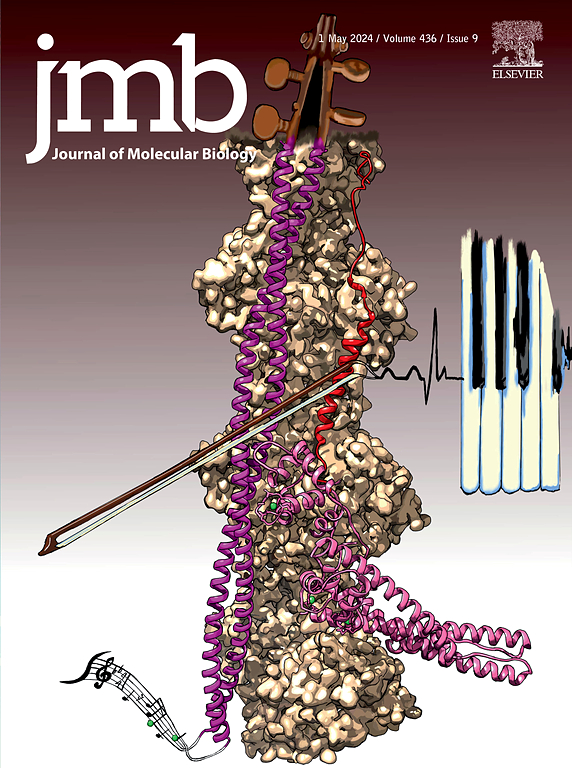PerturbSeq.db: An Integrated Repository for Comprehensive Analysis of Single-cell Perturbation Data
IF 4.5
2区 生物学
Q1 BIOCHEMISTRY & MOLECULAR BIOLOGY
引用次数: 0
Abstract
Single-cell perturbation studies have emerged as a transformative approach in biological research, offering unprecedented insights into cellular responses to genetic and chemical interventions. However, the field faces challenges related to data accessibility and integration. To address this, we present PerturbSeq.db (http://bioailab.com/PerturbSeq.db/), a comprehensive database that consolidates and harmonizes single-cell perturbation datasets from a diverse array of sources. PerturbSeq.db comprises 189 datasets from 77 studies, including 165 scRNA-seq and 24 scATAC-seq datasets, spanning approximately 50 distinct cell lines or tissues. To ensure data consistency and comparability, PerturbSeq.db employs a uniform processing pipeline across all datasets. The database is complemented by an interactive, user-friendly interface that facilitates efficient data exploration and analysis, empowering researchers to navigate the complexities of single-cell perturbation data. Overall, PerturbSeq.db serves as a critical resource for the scientific community, providing a comprehensive, well-annotated collection of datasets for analyzing and interpreting the effects of perturbation at the single-cell level.
db:一个集成的存储库,用于对单细胞扰动数据进行综合分析。
单细胞扰动研究已经成为生物学研究中的一种变革性方法,为细胞对遗传和化学干预的反应提供了前所未有的见解。然而,该领域面临着与数据可访问性和集成相关的挑战。为了解决这个问题,我们提出了摄动seq .db (http://bioailab.com/PerturbSeq.db/),这是一个综合数据库,可以整合和协调来自各种来源的单细胞摄动数据集。数据库包含来自77项研究的189个数据集,其中包括165个scRNA-seq和24个scATAC-seq数据集,涵盖了大约50个不同的细胞系或组织。为了确保数据的一致性和可比性,在所有数据集上使用统一的处理管道。该数据库是一个交互式的,用户友好的界面,促进有效的数据探索和分析,使研究人员能够导航单细胞扰动数据的复杂性。总的来说,为科学界提供了一个重要的资源,为分析和解释单细胞水平上的扰动影响提供了一个全面的、有充分注释的数据集。
本文章由计算机程序翻译,如有差异,请以英文原文为准。
求助全文
约1分钟内获得全文
求助全文
来源期刊

Journal of Molecular Biology
生物-生化与分子生物学
CiteScore
11.30
自引率
1.80%
发文量
412
审稿时长
28 days
期刊介绍:
Journal of Molecular Biology (JMB) provides high quality, comprehensive and broad coverage in all areas of molecular biology. The journal publishes original scientific research papers that provide mechanistic and functional insights and report a significant advance to the field. The journal encourages the submission of multidisciplinary studies that use complementary experimental and computational approaches to address challenging biological questions.
Research areas include but are not limited to: Biomolecular interactions, signaling networks, systems biology; Cell cycle, cell growth, cell differentiation; Cell death, autophagy; Cell signaling and regulation; Chemical biology; Computational biology, in combination with experimental studies; DNA replication, repair, and recombination; Development, regenerative biology, mechanistic and functional studies of stem cells; Epigenetics, chromatin structure and function; Gene expression; Membrane processes, cell surface proteins and cell-cell interactions; Methodological advances, both experimental and theoretical, including databases; Microbiology, virology, and interactions with the host or environment; Microbiota mechanistic and functional studies; Nuclear organization; Post-translational modifications, proteomics; Processing and function of biologically important macromolecules and complexes; Molecular basis of disease; RNA processing, structure and functions of non-coding RNAs, transcription; Sorting, spatiotemporal organization, trafficking; Structural biology; Synthetic biology; Translation, protein folding, chaperones, protein degradation and quality control.
 求助内容:
求助内容: 应助结果提醒方式:
应助结果提醒方式:


